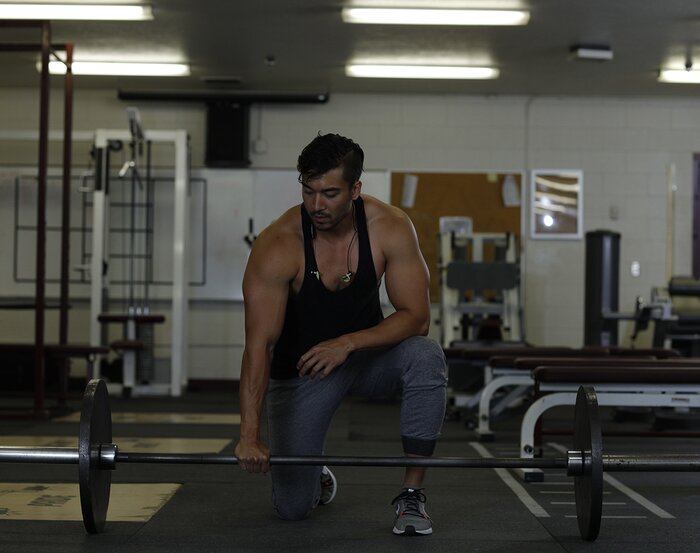Products You May Like
Are Isolation Movements Better for Muscle Growth? | Which Comes First: Strength or Hypertrophy? | Do I Need Rest Days? | Overtraining vs. Overreaching | How to Balance Volume and Intensity | The Power of Autoregulation
People casually toss around the term ”overtraining.” Some think they are constantly in an overtrained state, blaming their lack of progress on their self-diagnosed condition.
Others miss no opportunity to tell everyone that ”overtraining is a myth,” and that if you train and recover ”hard enough,” you can bust through any plateau.
Which position is accurate? Let’s start by defining some key terms.
Overtraining vs. Overreaching
True ”overtraining” is a severe medical condition, defined by multiple complex symptoms lasting for months or even years that can even end athletic careers. Symptoms of serious overtraining include increased resting heart rate and blood pressure, unexplained weight loss, altered fluid balance (dehydration, lack of perspiration), altered sleeping patterns, and psychological effects (mood swings, malaise, lack of psychological readiness for training and/or competition).
When people think they are overtraining, they often don’t realize how bad overtraining actually is, and don’t consider whether it is actually possible to overtrain from lifting.
“Overreaching,” on the other hand, is very common. It is a temporary response to heavy or intense training, and it’s even built into many training programs. This type of overreaching, known as functional overreaching, causes a short-term increase in fatigue and reduction in performance, followed by a brief taper that actually increases performance on testing, competition, or meet day.
This type of overreaching is a necessary part of being an athlete and optimizing performance. You can keep functional overreaching in your back pocket for when you need it to get that extra boost in performance for competition.
Nonfunctional overreaching is a more chronic, long-term condition that can last weeks or even months, although full recovery can be achieved with some rest. There might be some persistent physiologic and mood-related changes and accompanying performance reduction. This type of overreaching can interfere with long-term progress—spending weeks or months in a slump is an inefficient use of training time. If we catch it early and make adjustments, we can put the train back on the rails without much trouble before serious problems come up.
If either of these types of overreaching are left unaddressed, they can morph into overtraining.

Can You Overtrain by Lifting?
While overreaching and overtraining have been abundantly studied in endurance athletes, it has yet to be seriously investigated in the context of strength training. True overtraining is highly unlikely (if even possible) for strength athletes and is characterized by significant persistent symptoms, made worse by outside life stressors.
So, if you are feeling run-down but you’re not about to peak for a competition, you might be in a non-functional overreaching state. A deload period will help you get back on track.
Optimize rest and promote maximum recovery with complete, ideal training and recovery supplements. VIEW ALL
If you feel like your progress has stalled, I suggest following the algorithm from ”The Muscle & Strength Pyramid“ by Eric Helms to determine if it’s time to adjust your training. His chart addresses multiple variables that are most likely contributing to your decrease in performance, including sleep quality, nutrition habits, training intensity, and physical and psychological stressors.
Let’s say your progress has stalled but you’re sleeping 8-plus hours, eating enough protein, estimating RPE effectively, and training consistently with solid technique.
Following Helms’s decision framework, you should then ask yourself honestly if you truly dread going to the gym, you are sleeping worse than normal, your performance is getting worse despite the same or higher effort, life stressors are more severe than normal, and aches and pains are worse than normal.
Two or more ”Yes” answers means it’s time to take a step back from training and allow yourself some extra time to recover. Reduce your volume by cutting back on sets and backing off on intensity as needed by using a subjective RPE scale.
For example, your working sets during deload change from 5 sets of 5 reps at 83 percent 1RM to 3 sets of 5 reps at RPE 8-9, giving you fewer sets and more flexibility with intensity depending on physical and psychological readiness that day.
While overtraining is a real condition, it’s highly unlikely you’ll get there through resistance training alone. If you are experiencing a decrease in performance, the more likely cause is non-functional overreaching. Take the necessary steps to reduce your intensity and volume, and allow your body more time to rest and recover.
